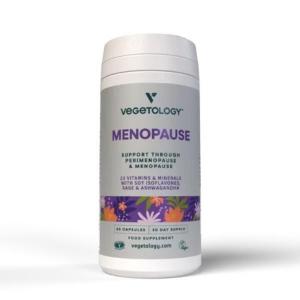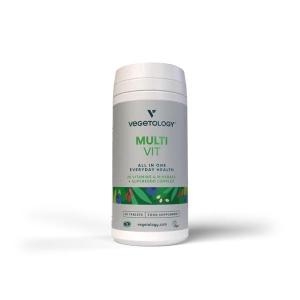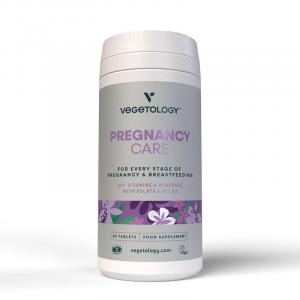
How to Choose the Best Skyr for Your Healthy Lifestyle

Skyr - the Icelandic Miracle Conquering Czech Refrigerators
In the shelves of Czech supermarkets and the offerings of health food stores, a word that was known only to a few enthusiasts a few years ago is appearing more frequently: skyr. At first glance, it resembles yogurt, but once you taste it or start to inquire what skyr actually is, you'll discover that it's something between yogurt, curd, and a high-protein treasure. In recent years, skyr has been gaining attention not only due to its nutritional profile but also because of its origin, which evokes romantic notions of Icelandic nature, purity, and simplicity.
What is Skyr and Why is it Different from Yogurt?
Although skyr is often classified with yogurts in stores, technically, it's a fresh cheese, not a fermented dairy product like yogurt. Its history dates back to the 9th century when it was brought to Iceland by Norwegian Vikings. Today, skyr is considered a traditional Icelandic dish and is an integral part of the local cuisine – locals consume it daily, either as breakfast, a snack, or even in savory dishes.
To produce skyr, skimmed cow's milk is used, which is heated and inoculated with a bacterial culture similar to that used in yogurts. Then rennet is added, a step typical for cheese production. Once the mixture thickens, the whey is separated, resulting in a thick, creamy product with a slightly tangy taste. The result is a dairy product with a texture similar to thick yogurt or curd, but with nutritional values and taste properties that set it apart.
Nutritional Benefits That Cannot Be Overlooked
One of the main reasons skyr is gaining popularity among health-conscious individuals is its composition. Skyr is naturally high in protein, low in fat, and relatively low in calories. In 100 grams of regular skyr, you'll find approximately 10 grams of protein, less than 0.5 grams of fat, and around 60 calories. This makes it satisfying for longer periods without burdening the stomach or the daily calorie budget.
It's an ideal choice for athletes, people on a weight reduction diet, and those looking for a quality source of protein without added sugar and fat. Additionally, it contains calcium, potassium, and cultures of friendly bacteria that support healthy digestion.
Try our natural products
For instance, take student Aneta, who tried to lose a few kilos before summer. Instead of sweet breakfast cereals, she started her day with skyr, a bit of honey, and fruit. "Skyr keeps me full until lunch, it's creamy, and I like it more than regular yogurt. Plus, I have more energy in the morning," she says. That's precisely why not only nutritionists but also ordinary people looking for a better alternative to regular dairy products have come to love it.
How Skyr Tastes and How to Use It in the Kitchen
The taste of skyr is mild, slightly tangy, and very refreshing. It resembles Greek yogurt but is not as fatty. In its natural form, it is neutral, making it suitable for both sweet and savory recipes. In stores, you'll find skyr in various flavors – from vanilla to raspberry to mango. However, the natural variant is usually rated best by nutrition experts because it does not contain added sugars.
The possibilities for enriching your diet with skyr are almost endless. It can be eaten on its own, used as a base in smoothies, mixed into oatmeal, or used instead of sour cream. It tastes great with fruits, nuts, or granola. Variations on tzatziki, vegetable dips, or salad dressings? Skyr is excellent for that too.
In Icelandic households, it is common to serve skyr with blueberries and a bit of sugar as a dessert. In the Czech Republic, it is increasingly used in baking – for example, in cheesecakes, replacing part of the fattier curd.
Skyr versus Yogurt
At first glance, they look similar. Both are dairy, thick, and refreshing. But upon closer inspection, the differences are apparent. Skyr contains more protein than regular yogurt, primarily because it is made from multiple times the amount of milk. One kg of skyr requires up to four times more milk than yogurt. This makes it a more concentrated and nutritious product.
Moreover, skyr is almost fat-free compared to most yogurts because it is made from skimmed milk. For comparison – regular plain yogurt has around 3 g of fat per 100 g, while skyr has less than 0.5 g. And while some yogurts can boast a high protein content, they are often sweetened or flavored with additives that reduce their nutritional balance.
So if you're looking for a product that truly satisfies, provides necessary nutrients, and doesn't overburden, skyr is the logical choice.
Is Skyr Suitable for People with Lactose Intolerance?
The good news is that skyr naturally has a low lactose content due to the fermentation process, during which bacteria convert part of the lactose into lactic acid. Many people with minor lactose sensitivity can incorporate skyr into their diet without problems. Additionally, some manufacturers offer lactose-free skyrs, ensuring comfortable digestion even for those who must avoid regular dairy products.
How to Choose Quality Skyr?
When choosing skyr in a store, it's essential to read the ingredients. Quality skyr should only contain milk and yogurt cultures, possibly rennet. Flavored variants should have as little added sugar as possible. The shorter the ingredient list, the better. Popular brands offering quality skyr come not only from Iceland but also from regional dairies striving to emulate the Icelandic original.
Storage is also crucial – since it's not a long-lasting product, it should be kept cold and consumed as soon as possible after opening.
Skyr and Sustainable Lifestyle
At a time when more people are interested in the origin of food and its impact on the planet, skyr plays an interesting role. It's true that animal production generally has a higher ecological footprint than plant-based. However, products like skyr, which are nutrient-rich and can replace less nutritious foods, can play a positive role. Moreover, if it comes from organic farming or local producers, its environmental impact significantly decreases.
Interestingly, even in Iceland, there is a growing interest in organic milk production, and some skyr brands already boast organic certification. Consumers thus have a choice – and this choice is key to a more sustainable future.
As Hippocrates once said: "Let food be thy medicine and medicine be thy food." He might add today: And don't shy away from skyr.
From Icelandic tradition, it has become a global trend. And while skyr was once an exotic term for many, today it is a common part of a healthy diet. It's no wonder – when something tastes good, satisfies, provides energy, and benefits the body, it's hard to find a reason not to include it in the daily menu.




